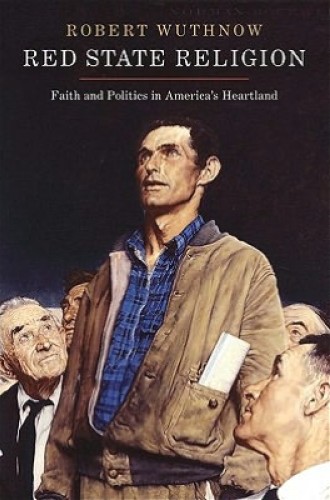Red State Religion, by Robert Wuthnow
Kansas is about as Republican as any state could be,” notes sociologist of religion Robert Wuthnow at the start of Red State Religion. From efforts to include the teaching of intelligent design in science curricula, to the murder of abortion provider George Tiller, to the state House’s recent passage of the anti-gay Kansas Preservation of Religious Freedom Act, Kansas politics are often polarizing and angry—and rooted at least rhetorically in socially conservative Christianity, both Protestant and Catholic. Since the election of Republican Sam Brownback as governor in 2010, critics have come to call Kansas “Brownbackistan”—a state in which conservative Christianity helps justify state policy.
But if the situation seems dire to those critics, including many moderate Republicans, Wuthnow provides encouraging news: Kansas has always been a place of political drama, stories of which are celebrated in literature, legend and song. Kansas was born in bloodshed over slavery, and Harper’s Ferry ringleader John Brown worked the area extensively (he was the subject of a 2008 production at Kansas City’s Lyric Opera). Brown is one of many in a long line of Kansans whose political activism has pushed against or beyond the boundaries of the law: hatchet-carrying temperance activist Carrie Nation, participants in Operation Rescue’s Summer of Mercy abortion protests, antigay Westboro Baptists. Some of the earliest lunch counter sit-ins were in Wichita (in 1958), and school desegregation was mandated by Brown v. the Board of Education of Topeka, Kansas. As Wuthnow recognizes, Kansas has been “dominated by moral politics all along.” The particulars of moral politics have shifted, but the fight to legislate Christian morality continues.
Wuthnow credits Kansas’s continued conservatism to four sources: antipathy toward big government, which emerged during the New Deal; resentment of being depicted as bumpkins in the popular national imagination; a strong valuation of associational democracy; and a demographic shift that has brought more conservatives, especially from the South, to the state.






